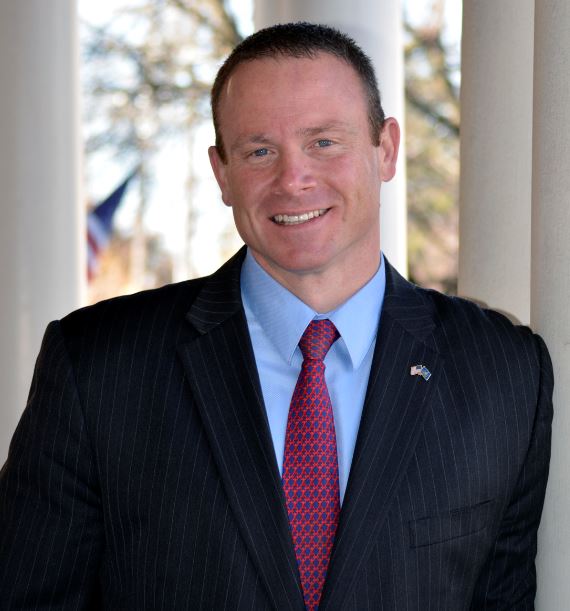Lancaster County’s New Holland Sales Stable: A Glimpse of Old Pennsylvania Culture
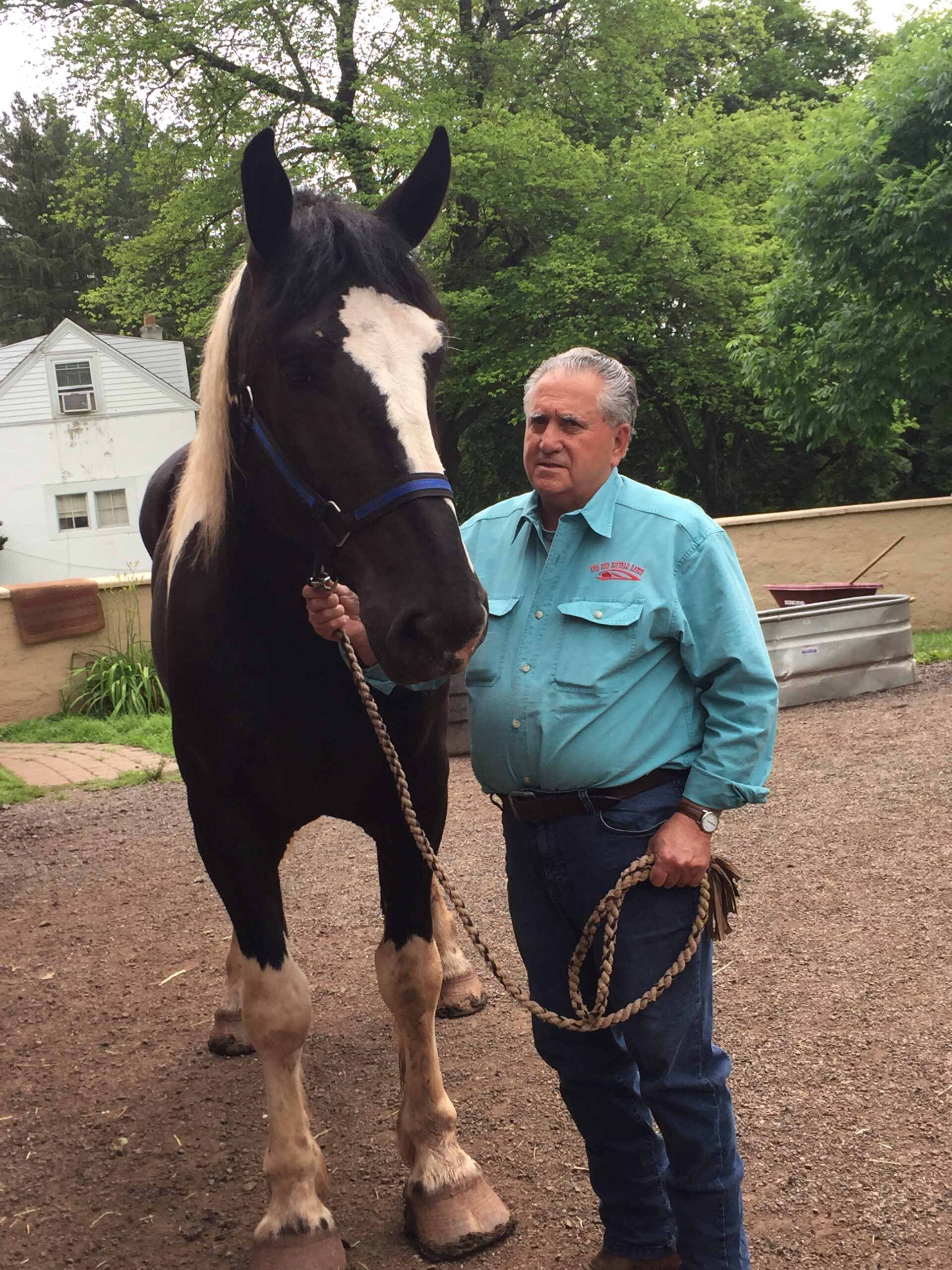
Step into the New Holland Sales Stable and it feels like you have entered another era when the pace of life was slower, more rural, and people knew their neighbors.
At least everyone seemed to know Mike Marino, owner of the Red Buffalo Ranch, a riding stable in Skippack. Marino sometimes buys horses from the New Holland auction in Lancaster County, but he is more likely to purchase saddles, bridles, or other tack there.
He usually acquires mounts for the Red Buffalo from a trusted dealer, he said. And sometimes people give him horses they are no longer able to take care of, knowing the animals will have a good home.
After watching an auction of saddles, horse blankets, bridles, and other new and used farm equipment, we walked through the stable areas where around 50 horses, ponies, and mules were tied up and waiting to be auctioned off. 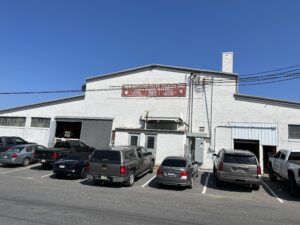
The animals were of every size, color, and description, some too skinny, others in good shape. Would-be buyers patted the and inspected their hooves and mouths. Kids pulled at their parents’ sleeves, pointing to particularly desirable ponies.
We returned to seats on worn, wooden bleachers to watch the auction. The auctioneer described each horse: A mare or a gelding, approximate age, whether it was gentle or needed an experienced rider. There were several handsome draft horses and two sleek gaited Tennessee Walkers that day, as well as a Thoroughbred.
The horses were sold “as is” if under $1,000. Otherwise, the auction offered a one-week guarantee.
Like the horses, people from all walks of life filled the bleachers. Many were Amish or Mennonite.
Riders, including two Mennonite girls in long dresses, piloted the horses onto the auction floor. They skillfully pirouetted and put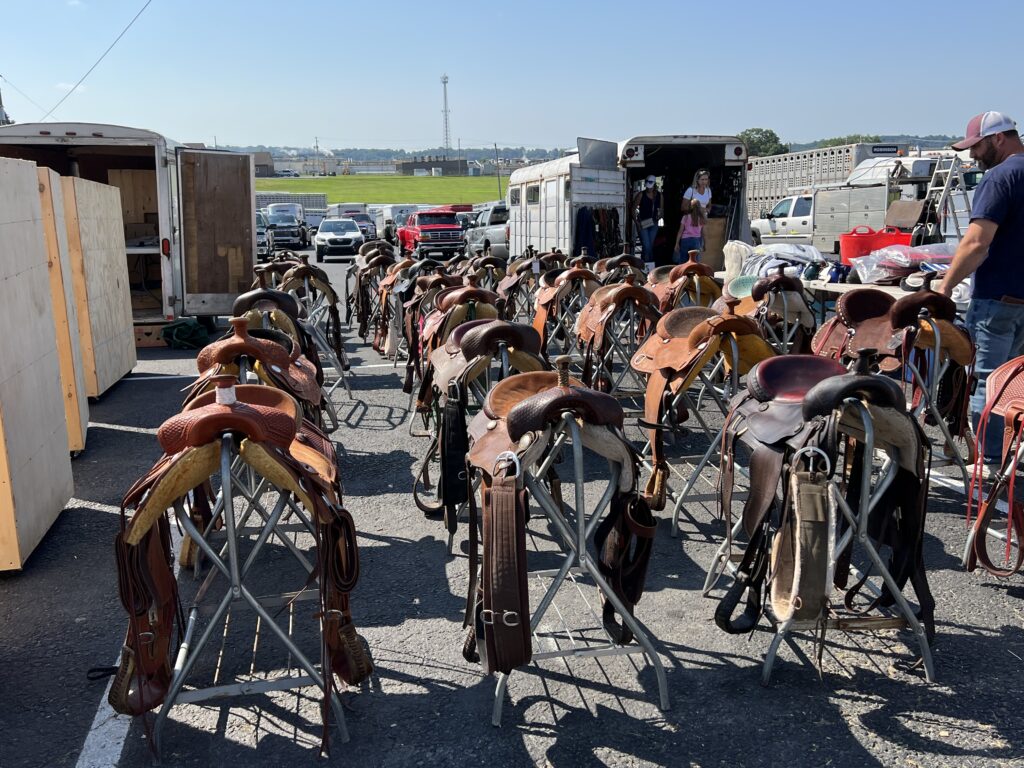 them through their paces in the enclosed space as the auctioneer described their mounts and the bidding began. Others, including draft horses, were led out as the auctioneer called out their characteristics. This one was a trotter who could pull a carriage, that one a good trail horse.
them through their paces in the enclosed space as the auctioneer described their mounts and the bidding began. Others, including draft horses, were led out as the auctioneer called out their characteristics. This one was a trotter who could pull a carriage, that one a good trail horse.
Winning bids ranged from hundreds to thousands of dollars. Marino noted auction prices spiked after people received their COVID stimulus checks but have fallen recently.
The auction has been in the Mennonite community since the 1920s. The Kolb family has owned it, with partners, since the 1970s. The current owner is David Kolb.
Auction manager Ryan Kolb said a veterinarian checks the horses before they are accepted for sale. Any horse that is sick or injured is not sold.
“He makes sure they are fit for sale,” said Kolb.
If not accepted for auction, the horse is returned to its owner. People who do not want to keep their horses are given the names of horse rescues. New Holland auctions horses every Monday morning.
Last year, the livestock auction sold 12,718 horses and 166,136 cattle. It also sold 214,080 sheep and goats and 42,913 hogs.
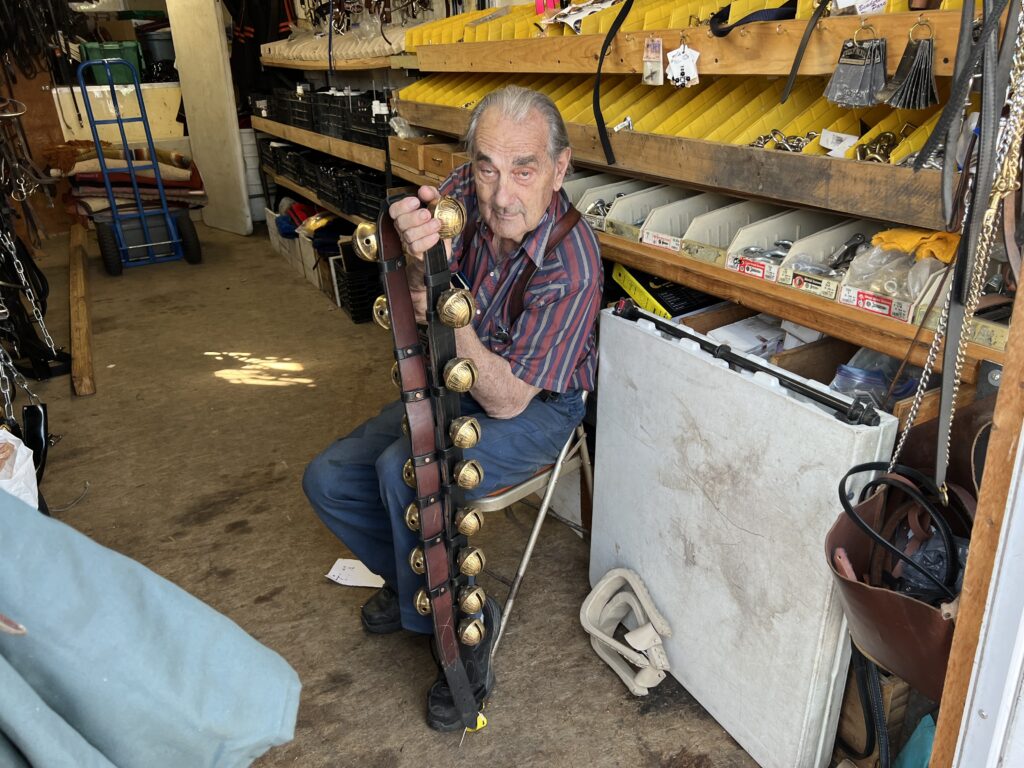
Craftsman Mervin Martin with some sleigh bells that he made.
Every year, kids who go to the summer riding camp at the Red Buffalo spend a morning at the horse auction. That day a group of campers arrived with their counselors and some parents in tow.
“I thought it was nice,” said camper Caroline Dagge, 11, of Ridley. “I thought all of the horses were really pretty.”
Piper Williams, 8, of King of Prussia, agreed the horses were “really pretty. I really enjoyed the auction. I think they were reasonable prices.”
Rachel Corropolese, 19, of Skippack, was a former Red Buffalo camper who now works at the riding stable and also at her family’s bakery.
“Whenever I’m needed, I’m here,” she said. She went to the auction as a camper and now enjoys coming back to help shepherd the current campers.
In the parking lot outside the auction stables, vendors set up tables or opened the doors of campers to display their wares. There were saddles, bridles, ropes, riding boots, saddle blankets, and anything an equestrian might need or be tempted to buy.
Mervin Martin, 62, who lives near the auction, said he has been working with leather most of his life.
“My dad had a tack shop,” he said. “I loved the smell of leather.” He began making things when he was 18 or 19 years old, and his camper full of handmade items attested to his prowess.
Please follow DVJournal on social media: Twitter@DVJournal or Facebook.com/DelawareValleyJournal

